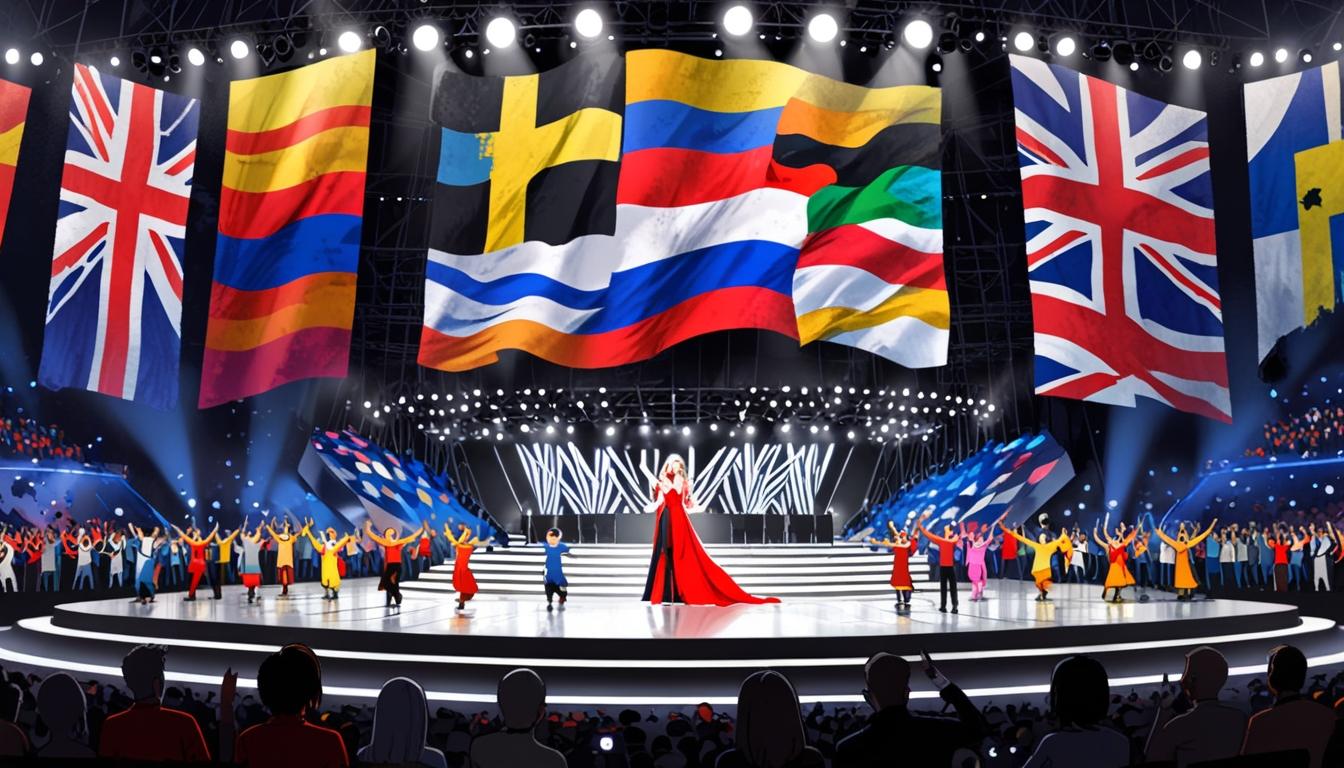The 69th Eurovision Song Contest has kicked off in Basel, Switzerland, embodying the extravagant celebration of music and culture that the event is known for. With 37 countries represented, the contest promises a week filled with vibrant performances, eye-catching costumes, and the anticipation of results that millions will watch around the globe. Last year's winner, Swiss singer Nemo, with his operatic anthem “The Code,” has set the stage for an event that attracted over 160 million viewers in 2022, revealing the unique blend of pleasure and scrutiny this annual spectacle entails.
Basel was chosen as the host city for this year’s event due to its strategic location bordering Germany and France, creating an accessible hub for Eurovision's diverse audience. The competitions commence with semifinals on Tuesday and Thursday, filtering through to the final, where 20 acts will vie for the coveted title. The “Big Five” countries—France, Germany, Italy, Spain, and the U.K.—along with the host Switzerland, automatically secure their spots in the finale, underscoring their influential roles within the contest.
While the competition is largely viewed as a celebration, it is not without its controversies. This year, calls for protests and debates surrounding Israel's participation linger over the event, rooted in the ongoing armed conflict in Gaza. Despite Israel’s representation through its public broadcaster, KAN, the European Broadcasting Union (EBU) faces heightened scrutiny. Critics, including over 70 former Eurovision participants, argue that the EBU’s decision to allow Israel to compete illustrates a troubling double standard, especially in light of Russia’s exclusion following its invasion of Ukraine. Many feel that the political climate surrounding Israel’s involvement contrasts sharply with the festival's professed values of inclusivity and universality.
The conflict, which has resulted in over 60,000 deaths according to various sources, adds a layer of complexity to the contest. Israeli contestant Yuval Raphael, a survivor of the October 7 Hamas attacks, performs a piece dubbed “New Day Will Rise,” reflecting resilience amid turmoil. Critics argue that allowing such participation trivialises the ongoing humanitarian crisis and call for discussions about the future of Israel's involvement in Eurovision. Some national broadcasters, including those from Spain and Iceland, have formally requested a reevaluation of Israel’s role in the competition.
In response to the sustained tensions, the EBU has implemented a new policy limiting the display of flags at the event, a decision that has drawn ire from LGBTQ+ advocates who view it as a direct affront to their visibility within Eurovision. Previously permitted, the display of non-national flags, including those symbolising pride and solidarity with Palestine, is now restricted, framing the event’s messaging within a narrow interpretation of political neutrality. This has sparked criticism from various sectors, compounding existing frustrations over perceived censorship and the marginalisation of pivotal social issues within this supposedly apolitical contest.
Security measures for the event have been ramped up, with 1,300 officers deployed to ensure safety amidst the anticipated protests. The mood in Switzerland is charged; far-right groups have even attempted to boycott the festival, branding it as an endorsement of 'woke' ideologies. Nevertheless, support from Swiss citizens, as evidenced through a recent referendum, indicates a robust backing for hosting Eurovision, suggesting that cultural celebration may overshadow the pervasive political unease surrounding it.
As the contest draws nearer to its remarkable finale on Saturday, audiences across multiple platforms, including national broadcasts and streaming channels, are preparing to engage with this iconic celebration of music. The votes cast and the performances witnessed will not only determine the champions of Eurovision 2023 but also reflect broader cultural sentiments towards representation, identity, and the complex interplay of politics within the sphere of entertainment.
Reference Map
- Paragraph 1: (1), (2)
- Paragraph 2: (1), (2)
- Paragraph 3: (1), (4), (3)
- Paragraph 4: (1), (5), (6)
- Paragraph 5: (1), (3), (4)
- Paragraph 6: (5), (6)
- Paragraph 7: (5), (4)
- Paragraph 8: (1), (7)
Source: Noah Wire Services
